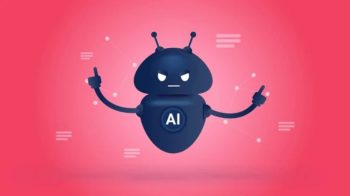
Salesforce’s new “AI Trust Quotient” shows that Artificial Intelligence (AI) has a trust problem. Nearly half (48%) of workers in Singapore say it is difficult to get what they want out of AI, and 40% do not trust the data used to train AI systems.
The “AI Trust Quotient” study, which surveyed 545 full-time workers in Singapore and nearly 6,000 globally, also found that more than half of workers in Singapore (58%) fear humans will lose control of AI, and 94% do not currently trust AI to operate without human oversight.
The trust gap in AI is hindering adoption. Of those who do not trust AI, 95% say they are hesitant to adopt it.
“Adoption of AI within the workforce is critical if businesses are to achieve their goals of increasing employee engagement and productivity which is foundational to higher value customer relationships and margins. But in order to use it, they need to trust it. AI is only as good as the data powering it, and new research shows that data makes or breaks the workforce’s trust in AI. Businesses need to unify their data across systems for AI to deliver useful, accurate outputs that workers trust,” said Sujith Abraham, Senior Vice President and General Manager at Salesforce ASEAN.
Abraham added: “This has to be supported by keeping humans in the driver’s seat of AI, empowering them to focus on the most important outcomes as we enter a new era of AI innovation. Only then can businesses achieve value from AI through better adoption.”
Without accurate data input and humans at the helm, this trust gap will continue growing, preventing businesses from reaping the full benefits of AI.
Key Findings of the “AI Trust Quotient” Report
The following are the key findings of the “AI Trust Quotient” report by Salesforce.
1. AI has a trust problem.
Workers find it hard to trust AI even as businesses race to invest in and capitalise on AI’s benefits. This trust gap presents a significant barrier for businesses in adopting and utilising AI effectively.
- Data will make or break workers’ trust in AI. Nearly half (48%) of workers in Singapore find it hard to get what they want from AI right now, and 40% do not trust the data used to train AI systems they see today.
- Fear that humans will lose control of AI. With the growing sophistication of AI, 58% of workers in Singapore fear humans will lose control of AI. 94% do not currently trust AI to operate without human oversight.
- Lack of trust hinders AI adoption. 95% of those who do not trust AI overall are hesitant to adopt it, and two in three (66%) of those who do not trust AI training data are hesitant to adopt it.
2. Businesses must tackle the data problem if they want trusted AI to become a reality.
According to Salesforce’s “AI Trust Quotient,” AI also has a data problem. Without the right data, businesses risk exacerbating the trust gap between workers and AI.
- Lack of complete and accurate data impacting trust in AI. 70% of workers who do not trust AI say it lacks the information needed to be useful. 65% of workers in Singapore say out-of-date public data and incomplete customer or company data (61%) would break their trust in AI.
- Tech improvements can strengthen trust in AI. To overcome this trust gap, workers in Singapore ranked the following as most important:
- Accurate data (the AI tool uses accurate data) – 84%
- Secure data (the AI tool does not put confidential data at risk) – 82%
- Holistic/complete data (the AI tool uses all possible, relevant data) – 79%
- The proof is in the results. 80% of workers in Singapore say that AI needs to consistently produce accurate outputs for them to trust it. This is higher than the global average of 68%. In Australia and India, the figure stands at 73% and 71%, respectively.
Businesses, according to the AI Trust Quotient, need to break down their disconnected data silos and ensure AI is grounded in a company’s own data.
3. As AI becomes more sophisticated, we must keep humans at the helm.
To unlock the full potential of AI, workers agree that humans must be in the driver’s seat of AI. This combines the best of human and machine intelligence to create more productive businesses, empowered employees, and trustworthy AI.
- Workers in Singapore stress the need for humans at the helm. 94% do not trust AI to operate without human oversight. This is slightly higher than the global average of 90%. These figures stand at 89% and 80% in Australia and India, respectively.
 Bringing AI and humans together. 90% of workers in Singapore do not trust AI to keep data safe on its own, but 59% trust AI and humans to keep data safe together.
Bringing AI and humans together. 90% of workers in Singapore do not trust AI to keep data safe on its own, but 59% trust AI and humans to keep data safe together.- Human-led factors that can drive more trust in AI are. more skill-building or training opportunities (74%), more accessibility and inclusivity (66%)
“The findings of Salesforce’s ‘AI Trust Quotient’ resonate strongly with our experience at AI Singapore. Building trust in AI is crucial for successful adoption, and this requires a multi-faceted approach,” said Laurence Liew, Director, AI Innovation, at AI Singapore. “AI Singapore’s initiatives, such as the AI Apprenticeship Programme (AIAP) and LearnAI, are focused on developing a skilled and responsible AI workforce, while programs like the 100 Experiments (100E) ensure that AI solutions are implemented with a human-centric approach, addressing real-world challenges and delivering tangible value. By prioritising data quality, transparency, and human oversight, we can foster greater trust in AI and unlock its transformative potential for businesses and society.”
 (0)
(0) (0)
(0)Archive
- October 2024(44)
- September 2024(94)
- August 2024(100)
- July 2024(99)
- June 2024(126)
- May 2024(155)
- April 2024(123)
- March 2024(112)
- February 2024(109)
- January 2024(95)
- December 2023(56)
- November 2023(86)
- October 2023(97)
- September 2023(89)
- August 2023(101)
- July 2023(104)
- June 2023(113)
- May 2023(103)
- April 2023(93)
- March 2023(129)
- February 2023(77)
- January 2023(91)
- December 2022(90)
- November 2022(125)
- October 2022(117)
- September 2022(137)
- August 2022(119)
- July 2022(99)
- June 2022(128)
- May 2022(112)
- April 2022(108)
- March 2022(121)
- February 2022(93)
- January 2022(110)
- December 2021(92)
- November 2021(107)
- October 2021(101)
- September 2021(81)
- August 2021(74)
- July 2021(78)
- June 2021(92)
- May 2021(67)
- April 2021(79)
- March 2021(79)
- February 2021(58)
- January 2021(55)
- December 2020(56)
- November 2020(59)
- October 2020(78)
- September 2020(72)
- August 2020(64)
- July 2020(71)
- June 2020(74)
- May 2020(50)
- April 2020(71)
- March 2020(71)
- February 2020(58)
- January 2020(62)
- December 2019(57)
- November 2019(64)
- October 2019(25)
- September 2019(24)
- August 2019(14)
- July 2019(23)
- June 2019(54)
- May 2019(82)
- April 2019(76)
- March 2019(71)
- February 2019(67)
- January 2019(75)
- December 2018(44)
- November 2018(47)
- October 2018(74)
- September 2018(54)
- August 2018(61)
- July 2018(72)
- June 2018(62)
- May 2018(62)
- April 2018(73)
- March 2018(76)
- February 2018(8)
- January 2018(7)
- December 2017(6)
- November 2017(8)
- October 2017(3)
- September 2017(4)
- August 2017(4)
- July 2017(2)
- June 2017(5)
- May 2017(6)
- April 2017(11)
- March 2017(8)
- February 2017(16)
- January 2017(10)
- December 2016(12)
- November 2016(20)
- October 2016(7)
- September 2016(102)
- August 2016(168)
- July 2016(141)
- June 2016(149)
- May 2016(117)
- April 2016(59)
- March 2016(85)
- February 2016(153)
- December 2015(150)
